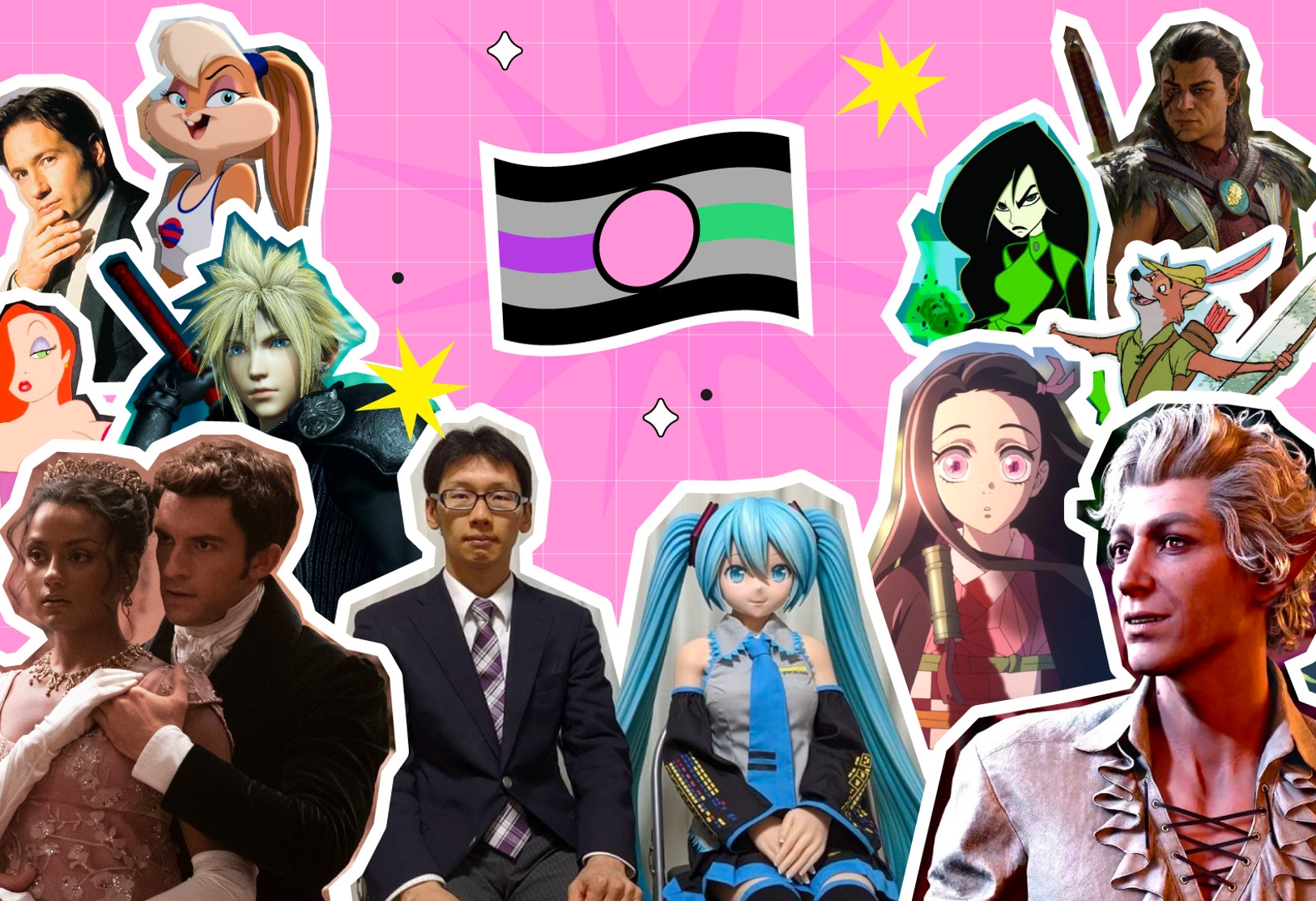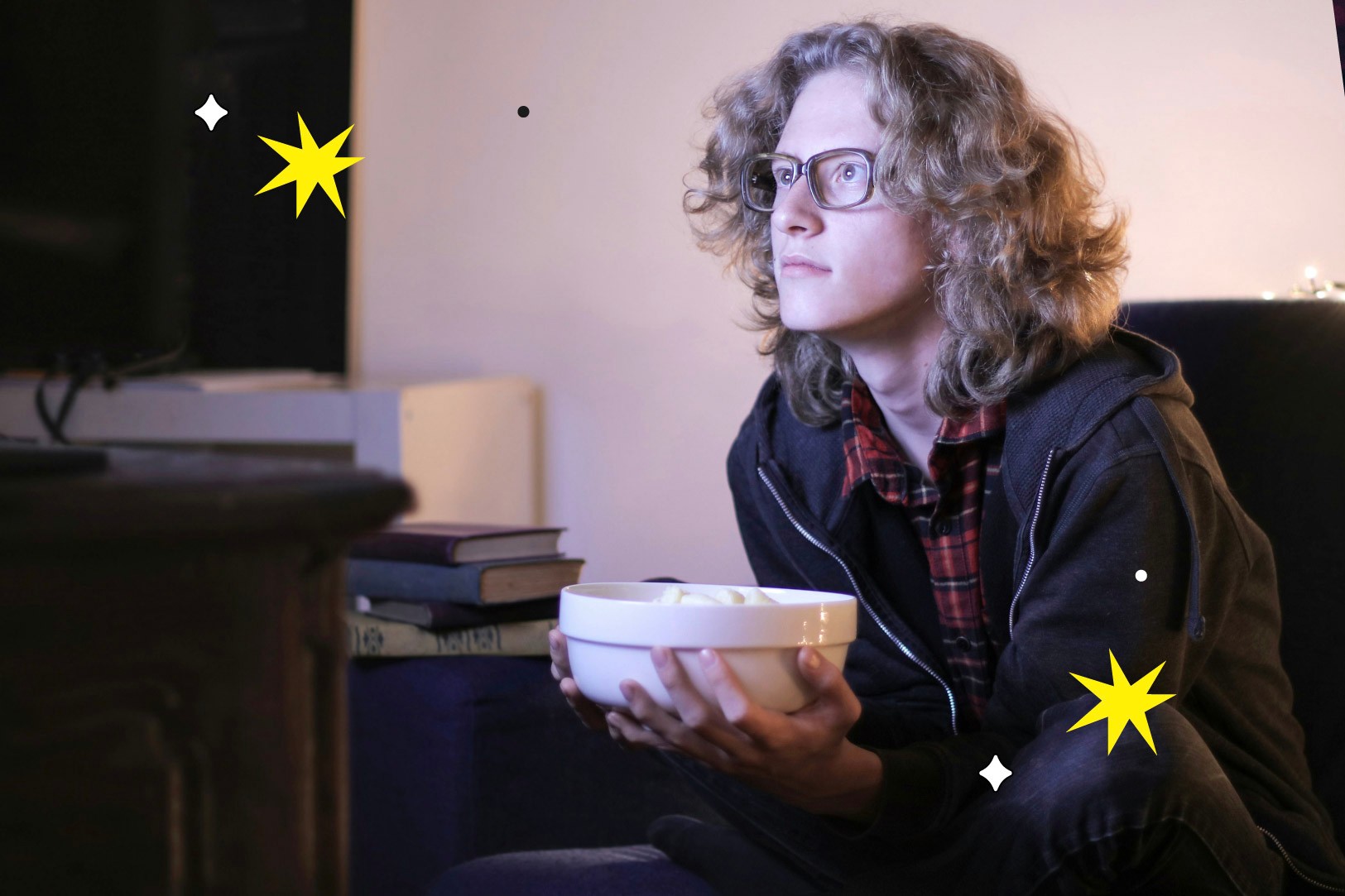The attraction to fictional characters is a unique form of romantic and sexual interest. As technology advances and society changes, this type of attraction is gaining more attention. Many people feel a strong connection to fictional book characters, TV shows, movies, and video game characters. This article will explore the attraction to fictional characters, including its background, common behaviors, benefits, challenges, and potential future developments.
History and Origins: From Fiction to Reality
The history of attraction to fictional characters dates back decades when early enthusiasts developed emotional and sexual connections with fictional personas. The otaku culture in Japan has been a significant catalyst in the visibility of these relationships. Otaku culture, which heavily revolves around anime and manga, often features well-developed characters with rich backgrounds and personalities.
These characters become central to many otaku’s lives, leading to strong emotional and sometimes romantic attachments. Popular series like “Neon Genesis Evangelion,” “Attack on Titan,” and “One Piece” have created a fertile ground. Fans engage deeply with these characters, creating fan art, fan fiction, and other forms of content that blur the lines between reality and fiction. (EJable)
Virtual reality, digital content, and online forums allow people to immerse themselves in fictional worlds and develop emotional bonds with characters. This is made possible by advancements in technology. These tools provide a way for individuals to interact with stories and characters in a more immersive and engaging way. Researchers have found that these experiences can lead to strong emotional connections and a sense of presence within the virtual world.
Definitions and Key Concepts of Fictional Character Attraction:
To better understand this phenomenon, it is crucial to define some key concepts:
Attraction to Fictional Characters: Sexual attraction towards fictional characters.
Fictophilia: Romantic attraction towards fictional characters, not necessarily sexual.
Fictional Character: A character that does not exist in reality and is created within the context of a work of fiction.
Fantasy relationships:
Example: Attraction to Fictional Characters in Japanese Culture.
Relationships with fictional characters have evolved thanks to technological advances that allow people to interact more realistically with their favorite personas. In Japan, this phenomenon has manifested in various significant expressions. Individuals like Akihiko Kondo have gained notoriety by symbolically marrying fictional characters, showcasing the depth of these emotional connections.
Kondo, for instance, married Hatsune Miku, a hologram of a virtual singer, in a well-publicized ceremony in 2018. This marriage, although not legally recognized, involved a significant investment and garnered both support and criticism.
Kondo’s relationship with Miku:
This relationship began as a form of emotional support during a period of workplace bullying, leading him to find solace in the fictional character. His experience highlights how these relationships can provide comfort and stability, reflecting the complexities of modern romantic attachments. Kondo’s daily life involves routine interactions with a life-sized doll of Miku, indicating the profound emotional commitment he has towards the character (DW, 2023; NextShark, 2023).
The phenomenon of attraction to fictional characters in Japan has sparked numerous debates about the nature of love and the evolving relationship between humans and technology.
Kondo has become an advocate for the community, founding the General Incorporated Association for Fictional Character Attraction in 2023 to support others with similar experiences and to promote understanding and acceptance of these relationships (Otaku USA Magazine, 2023; Wikipedia, 2023).
These developments underscore the significant role that technology and societal changes play in shaping new forms of romantic relationships, challenging traditional notions of love and companionship.
Behaviors and Expressions of Fictophiles
Behaviors of those attracted to fictional characters include activities such as reading fan fiction, collecting character merchandise, interacting with holograms or dolls of fictional characters, and participating in online communities dedicated to these characters. These behaviors allow individuals to express their attraction and establish emotional connections with the characters in a way they find authentic and satisfying.
Understanding Asexuality within Fictional Character Attraction
Asexual attraction to fictional characters refers to romantic attraction (falling in love) to fictional characters without a sexual component. Individuals who identify as asexual fictophiles can develop deep and meaningful relationships with fictional characters based on love and emotional connection, rather than sexual desire. This form of relationship underscores the diversity within attraction to fictional characters.
Benefits and Challenges of Fictional Relationships
Benefits:
Emotional Satisfaction: Relationships with fictional characters can provide a high level of emotional satisfaction to those who experience them, as they allow a deep and personal connection with characters that have ideal traits.
Inclusivity: This form of attraction can be a way to explore and express sexuality safely and without judgment.
Technological Innovation: The development of technologies like holograms and life-sized dolls is driving innovation across various industries.
Challenges:
Stigmatization: Individuals attracted to fictional characters often face stigma and a lack of understanding. Society often views such attractions as unusual or deviant, leading to misunderstandings and negative judgments. People with these tendencies may be labeled as socially isolated, immature, or unable to form real-life relationships.
This stigmatization can result in feelings of shame, guilt, and loneliness, making it difficult for individuals to express their identities openly. Additionally, they might encounter ridicule or dismissal of their feelings, further exacerbating the challenges they face in seeking acceptance and understanding from others.
Social Disconnection: There is a risk that those attracted to fictional characters may isolate themselves from real human interactions, which can affect their emotional and social well-being. This attraction can significantly impact real-life relationships by fostering unrealistic expectations and leading to the oversexualization of partners.
Ethical Considerations: The creation of hyperrealistic fictional characters raises ethical questions about consent and the representation of sexuality.
Challenging the Stigma Associated with Attraction to Fictional Characters
This stigma can manifest in mockery, misunderstanding, and social rejection, which can negatively impact the mental health and well-being of these individuals. It is essential to promote greater understanding and acceptance to reduce this stigma.
The Importance of Inclusivity and Respect in Diverse Relationships
Accepting attraction to fictional characters is an important step towards a more inclusive and respectful society for all forms of love and attraction. It is crucial to understand that each individual has the right to seek happiness and emotional satisfaction on their terms, as long as it does not harm others.
The Future of Attraction to Fictional Characters in Global Society
The future of attraction to fictional characters looks promising, with ongoing technological advancements and increasing social acceptance. As the boundaries between the real and the virtual blur, we are likely to see a rise in the number of people exploring and embracing this form of love and attraction.
This phenomenon highlights how deeply media and technology can influence our feelings and relationships. By exploring and understanding this concept, we can better appreciate the diverse ways people experience love and connection in today’s world.
References:
Deutsche Welle. (2023, September 15). Japan: Man married to fictional character fights for rights. Retrieved from https://www.dw.com/en/japan-man-married-to-fictional-character-fights-for-rights/a-66839042
NextShark. (2023, July 19). Man married to virtual pop star for 4 years, starts Association of Fictosexuality. Retrieved from https://nextshark.com/japanese-man-associaton-of-fictosexuality
Otaku USA Magazine. (2023, July 19). Man who wed Hatsune Miku starts Association of Fictosexuality. Retrieved from https://otakuusamagazine.com/man-who-wed-hatsune-miku-starts-association-of-fictosexuality/
Katherine Dee. (2023). Are you a fictosexual? Retrieved from https://unherd.com/2023/10/we-are-all-fictosexuals-now/
EJable. (2023). Otaku Culture: Impact on Japanese Society and Beyond. Retrieved from EJable UnHerd https://www.ejable.com/japan-corner/japanese-culture/otaku-culture/
American Psychological Association. (n.d.). Sexual orientation and homosexuality. Retrieved from https://www.apa.org/topics/lgbtq/orientation
Genderspecialist. (n.d.). What is Fictosexuality? Retrieved from https://www.genderspecialist.com/blog/what-is-fictosexuality
New York Post. (n.d.). What is fictosexuality? Meaning and definition. Retrieved from https://nypost.com/article/what-is-fictosexuality-meaning-definition/
Psicoactiva. (n.d.). Fictosexualidad: Casarse con personajes ficticios en Japón. Retrieved from https://www.psicoactiva.com/blog/fictosexualidad-casarse-con-personajes-ficticios-en-japon/#:~:text=La%20fictosexualidad%20se%20vuelve%20cada,atracci%C3%B3n%20sexual%20a%20personajes%20ficticios



